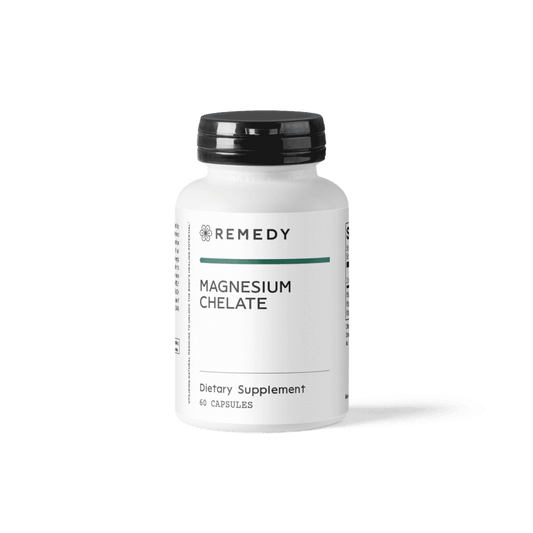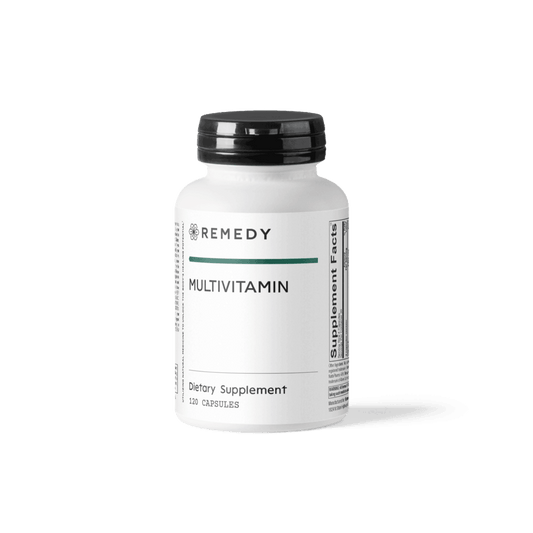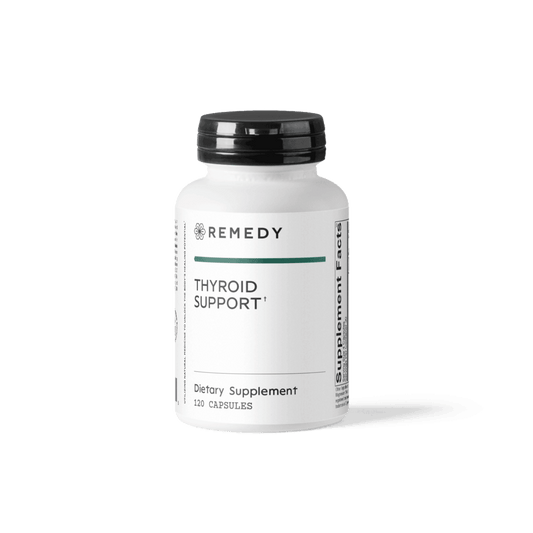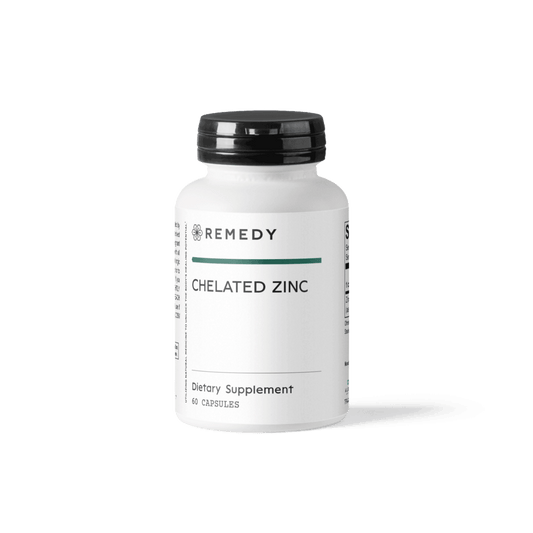Share
A functional medicine approach looks at additional thyroid makers and ensures levels are optimal and in balance with one another.
Lifestyles with high stress, poor sleep, minimal exercise, and diets high in processed foods are breeding grounds for thyroid disorders. There are lifelong pharmaceutical treatments available that will support your thyroid that are sometimes necessary. But, in many cases, it can also be healed naturally through diet and lifestyle changes. The functional medicine approach will give you the guidelines on how to naturally heal your thyroid disorder.
What is Functional Medicine?
If you are interested in optimizing your lifestyle to promote health then you’re likely a good candidate for the functional medicine approach to thyroid disorders.
Functional medicine is a biology-systems-based approach to understanding and treating your disease. This approach seeks to uncover the underlying cause of your condition. It’s much less suppression of your symptoms and much more an investigative look into what’s causing those symptoms in the first place.
Functional medicine practitioners take the position that disease is an endpoint and function is a process that can move both forward and backward. Function changes over time due to the unique interaction of an individual’s genome with their environment, diet, and lifestyle.
The important thing to recognize about functional medicine is that one condition or disease can have multiple root causes. Similarly, one cause may result in several different conditions.
Here is a great example of functional medicine. One of the biggest contributors to chronic disease is inflammation. Several different root factors can cause chronic inflammation. Examples include excessive drinking, smoking, obesity, chronic stress, exposure to toxins, and autoimmunity. On the other hand, chronic inflammation causes a myriad of conditions like stroke, chronic respiratory diseases, heart disorders, and cancer.
What Are the Most Common Thyroid Disorders?
So, how can functional medicine provide an alternative form of treatment for thyroid disorders?
Well, the most common form of thyroid disorder is hypothyroidism. This refers to an underactive thyroid gland or a thyroid gland that fails to produce enough of the thyroid hormones. It often presents as an autoimmune disease known as Hashimoto’s Thyroiditis.
This occurs when your body makes antibodies that attack the cells in your thyroid. The thyroid then can't make enough of the thyroid hormone. Not surprisingly, it is an inflammatory autoimmune disease, which just means that it feeds into a vicious cycle of chronic inflammation in your body.
The functional medicine approach helps address hypothyroidism by looking at you as a holistic person. It includes looking at your diet, lifestyle, and environment. A functional medicine practitioner approaches thyroid disorders by digging deeper into the factors that lead to autoimmune thyroid disease in the first place. They seek to answer the question of “why” you developed a thyroid disorder, and then they help you get on the right path to addressing that cause.
How are Thyroid Disorders Diagnosed?
Conventional and functional doctors use similar tools to diagnose thyroid disorders. You can likely expect a physical examination, complete medical history, and analysis of your symptoms. Both types of doctors will also use lab work to help identify your thyroid hormone levels.
However, the difference is in the details. Most conventional doctors will only check for your thyroid-stimulating hormone (TSH) levels and your inactive thyroid hormone (T4) levels. In order to get a full picture of your thyroid health, a functional medicine practitioner will recommend a full thyroid panel. They will check your TSH, free T4, free T3, and reverse T3 levels, as well as certain antibodies to look for thyroid autoimmunity.
Even when one or more markers are within the “normal” range, your symptoms may persist. This is why functional medicine practitioners look at optimal values and appropriate conversion ratios to ensure optimal function.
Ask your practitioner to order the thyroid tests below or click here to order them yourself.
Thyroid Stimulating Hormone (TSH)
TSH (Thyroid-stimulating hormone) is not a hormone at all, rather it is a hormonal signal sent from the pituitary gland to the thyroid to tell the thyroid how much thyroid to make and release. It serves as a temperature gauge to the body to evaluate how much thyroid hormone is circulating and reports back to the thyroid to make more or less hormone.
TSH is the most common, and unfortunately sometimes the only marker conventional practice looks at to evaluate thyroid disorders. This tied with a broad reference range leaves many thyroid disorders largely unaddressed until more symptoms occur and testing is repeated.
Low TSH means the body has an abundance of thyroid hormone and the the signaling is reduced meaning more thyroid hormone production should not occur.
High TSH means the body is lacking thyroid hormone and signaling needs to be sent to the thyroid to make more thyroid hormone.
- Standard Reference Range: 0.45-4.12 mlU/L (may vary by lab)
- Optimal Range: 0.5-2 μIU/mL
Thyroid Hormones
The two most prevalent thyroid hormones in our body are thyroxine (T4) and triiodothyronine (T3). T4 is actually a prohormone and is converted into the more active T3. This is why a functional medicine practitioner will not only look at optimal ranges of T4 and T3, but also how effectively T4 is converting to T3.
T4 also creates another inactive form of thyroid hormone, reverse T3 (rT3), whose purpose is to keep the delicate system in balance if there is too much active T3 in the system, rT3 can bind to the same receptor sites to “pump the brakes” and block T3 from exerting effects. RT3 is a good balancing hormones in the thyroid cascade when kept within check and balance, however, when elevated it can cause hypothyroid symptoms even if your TSH and T4 are optimized. RT3 is often elevated in times of high stresss.
FREE T4 (THYROXINE)
- Standard Reference Range: 0.8-1.8 ng/dL
- Optimal Range: 1.0-1.5 ng/DL
FREE T3 (TRIIODOTHYRONINE)
- Standard Reference Range: 2.3-4.2 pg/mL
- Optimal Range: 3.0-4.0 pg/mL
REVERSE T3 (RT3)
- Standard Reference Range: 8-25 ng/d
- Optimal Range: Less than 15 ng/dl
Thyroid Antibodies
When our immune system is dysregulated, sometimes it can start to recognize our thyroid gland as a “foreign invader” and start to attack it, which ultimately can lead to autoimmune thyroid conditions like Hashimoto’s.
It is important to monitor thyroid antibodies as these can be elevated for years prior to a change in TSH is detected. Detecting antibodies early can help to identify the problem early and work to reverse and prevent progression to full-blown thyroid disorder.
The two most common antibodies is Hashimoto’s are thyroid peroxidase (TPO) antibodies and Thyroglobulin (TG) antibodies.
ANTI-TPO (THYROID PEROXIDASE ANTIBODIES)
- Standard Reference Range: less than 35 IU/mL
- Optimal Range: less than 15 IU/mL
ANTI-TG (THYROGLOBULIN ANTIBODIES)
- Standard Reference Range: less than 20 IU/mL
- Optimal Range: less than 2 IU/mL
What are Risk Factors for Thyroid Disorders?
It’s incredibly important to understand the risk factors for thyroid disorders. This is especially true if you are seeking to address the root cause and build a comprehensive treatment plan. Here are some of the common risk factors for thyroid disorders:
- Stress - the stress hormone, cortisol, may adversely affect the production of the thyroid hormone. This can lead to an imbalance in your body’s hormones.
- Leaky gut - increased intestinal permeability allows undigested food particles to escape into your bloodstream. This can lead to chronic inflammation, a compromised immune system, and in some cases autoimmune disease.
- Toxins - this is why looking at your environment is so important. Exposure to harmful chemicals can cause thyroid disorders. Toxins are often hidden in common household products, beauty products, and plastics. Our food and water sources are also laden with chemical pesticides and heavy metals.
- Infections - the Epstein-Barr virus has been linked to thyroid disorders. It can lay dormant in your body for years and then flare up when you are under heavy stress.
- Food sensitivities - inflammatory foods and foods that you are sensitive to can cause further inflammation and disease in your body.
- Autoimmune conditions - if you already have an autoimmune disease you are 25% more likely to develop another one, including an autoimmune thyroid disorder.
When to See a Doctor About Thyroid Disorders?
Nearly 5 out of 100 Americans ages 12 years and older have hypothyroidism, although most cases are mild or have few obvious symptoms. Often, you will suffer for years without realizing that your thyroid gland is to blame. Additionally, women are more likely to develop a thyroid disorder than men.
Symptoms of thyroid disorders vary from person to person. Depending on the nature and extent of your condition you may experience more or fewer symptoms. Here are some of the common symptoms associated with thyroid issues:
- fatigue
- weight gain
- trouble tolerating cold/excessive sweating
- joint and muscle pain
- dry skin or dry, thinning hair
- heavy or irregular menstrual periods or fertility problems
- slowed heart rate
- depression/mood disorders
The body is a highly complex web of interrelated systems. If something is wrong in one area it will often cause imbalances in other areas. If you think for a minute that you may have a thyroid disorder, go see a functional medicine practitioner who can help you evaluate your situation.
Are Thyroid Disorders Treatable?
The good news for you is that thyroid disorders are treatable. The functional medicine approach to autoimmune thyroid treatment requires dietary changes, adopting some lifestyle strategies, and appropriate supplementation to support your body.
A few of the functional medicine strategies for treating thyroid disorders include, but are not limited to, the following:
- Repair the gut microbiome
- Remove inflammatory food
- Switch to a Whole Foods diet
- Lower toxicity
- Identify infections
- Exercise regularly
- Practice stress management
- Get plenty of sleep
If you would like to get more information about thyroid disorders or other ways to optimize your health, consider scheduling a 15-minute consultation with me. As a functional medicine practitioner, I seek to set you on the right path to better health!








